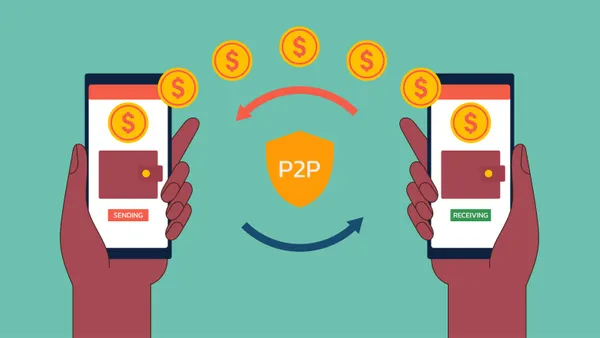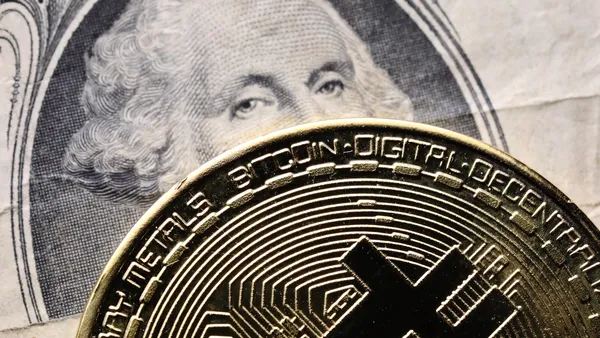Dive Brief:
- Banks of the future must fully embrace and leverage the "democratization of data" to compete in a digital economy, Ryan Caldwell, CEO of data management company MX, said in a webinar last week. In a few years, "there won’t be any banks that exist that aren’t doing this to a significant degree," he said.
- Democratization of data happens when digital information is made available to customers themselves and to third-party vendors without the need to involve IT.
- The challenge for banks and medical companies, for example, is striking a balance between protecting the consumer in two ways, Caldwell said. "The walls are there for a reason, in some cases, and in other cases, in more of a bureaucratic red-tape way that hurts the consumer and hurts innovation," he said. "How do we protect the consumer by making them able to share the data but making sure the data is also safe?"
Dive Insight:
Banks and their customers have access to thousands of data points, including credit scores, car insurance quotes, student loan rates, income levels, and even how much an individual spends on coffee each month. But because certain segments of data are held by disparate companies, the key is centralization, where data is structured, searchable, with references and links, Caldwell said.
Customers can use an app such as Mint to track their spending, CreditWise to track their credit score, credit card apps to track every purchase. But without centralization, a bank may be unable to accurately gauge which financial services products a customer needs, at what interest rates or with what perks, Caldwell said, citing one of the world’s most heavily trafficked websites.
"Wikipedia is a great example of the democratization of data," he said. "One of the big jokes is, does that data have integrity? Banks are going through this same question ... [where] data is highly unstructured and not centralized, not within the bank, but even worse so, not around the user."
Building trust with customers will remain a top priority, Caldwell said. But that trust has yet to develop, according to a study The Clearing House released in November. About 70% of the nearly 4,000 people surveyed last summer said they were confident their information was private and secure. But four in five users were not fully aware that apps or third parties may store their bank account username and password. And many said they were unaware how their personal data is stored and shared, or even which data is used.
"You’re going to have to know that that brand can be trusted with that data," Caldwell said. "The portability of data even drives more reasons for why that trust has to be rock solid in the relationship [between banks and customers].
"People are driving their financial lives with the equivalent of a semi truck at 80 mph all across this country," Caldwell said. "[Banks] have the ability to put data collection around that vehicle and guide people to safety, it’s happening right now. Banks need to ask, we know we need to innovate, so what does that look like?
"And the guiding light of all of this is advocacy. The only way to have a meaningful relationship with the consumers you serve is to be their advocate," Caldwell said.












